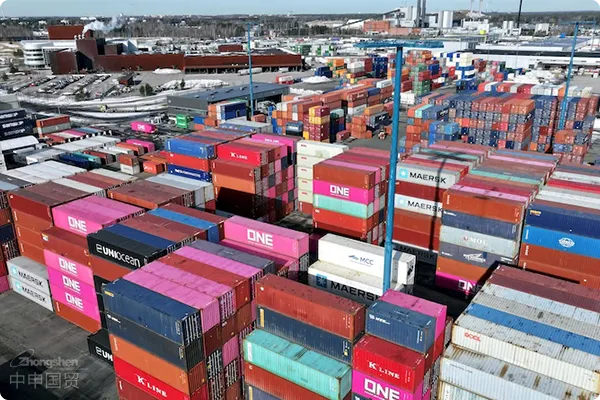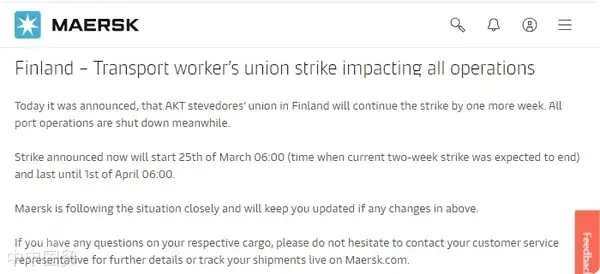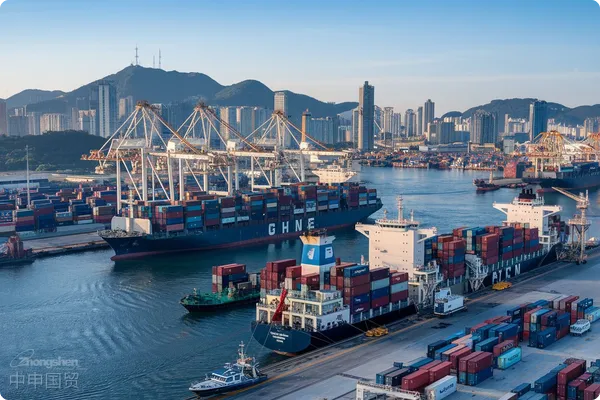- Shanghai Zhongshen International Trade Co., Ltd. - Two decades of trade agency expertise.
- Service Hotline: 139 1787 2118

Finlands major trade unions and government reached a deadlock in negotiations over labor law amendments, deciding to extend the large-scale strike action that began on March 11, causing paralysis in Finnish port logistics operations,import and exportBusiness operations suspended.
Reports indicate this strike was initiated by unions representing dockworkers, with over 7,000 workers participating. Unions stated the protest focuses on the governments proposed labor law amendments being too ideological and failing to meet workers actual needs.
The strike affects wide-ranging operations, with ship loading/unloading, container pickup and delivery services completely halted,Air Transportationand land logistics will also be severely impacted. Currently, container operations at Finlands major ports - Helsinki, Kotka, Turku and Rauma - have been suspended for another week.
Operators revealed that even if dockworkers return to work soon, it will take several days for the ports to clear the backlog of cargo. Meanwhile, with the upcoming Easter holiday, operations are not expected to resume before April 2.
Facing paralyzed ports, international shipping giants have already implemented contingency plans. Maersks latest warning on its official website stated that due to the unions decision to extend the strike until April 1, all port operations in Finland have been completely shut down. The company advised customers to closely monitor the situation to address potential logistics delays and transportation challenges.

German multinational logistics giant Kuehne + Nagel also issued an important warning that the Finnish port strike may continue until Easter on April 1. During this period, containers cannot enter or exit ports, causing significant disruptions to logistics transportation. The company recommended customers adjust their logistics plans promptly to mitigate potential delays and inconveniences.

Analysts pointed out that Finland, as a crucial Nordic hub port, will see this strike block trade logistics channels across the entire Nordic region, dealing a heavy blow to the local economy.
The impact is expected to last for an extended period. Even after the strike ends, it will take time for ports to resume normal operations. Relevant companies have begun implementing emergency measures, adjusting freight routes and schedules to minimize losses.
Related Recommendations
? 2025. All Rights Reserved. Shanghai ICP No. 2023007705-2  PSB Record: Shanghai No.31011502009912
PSB Record: Shanghai No.31011502009912










